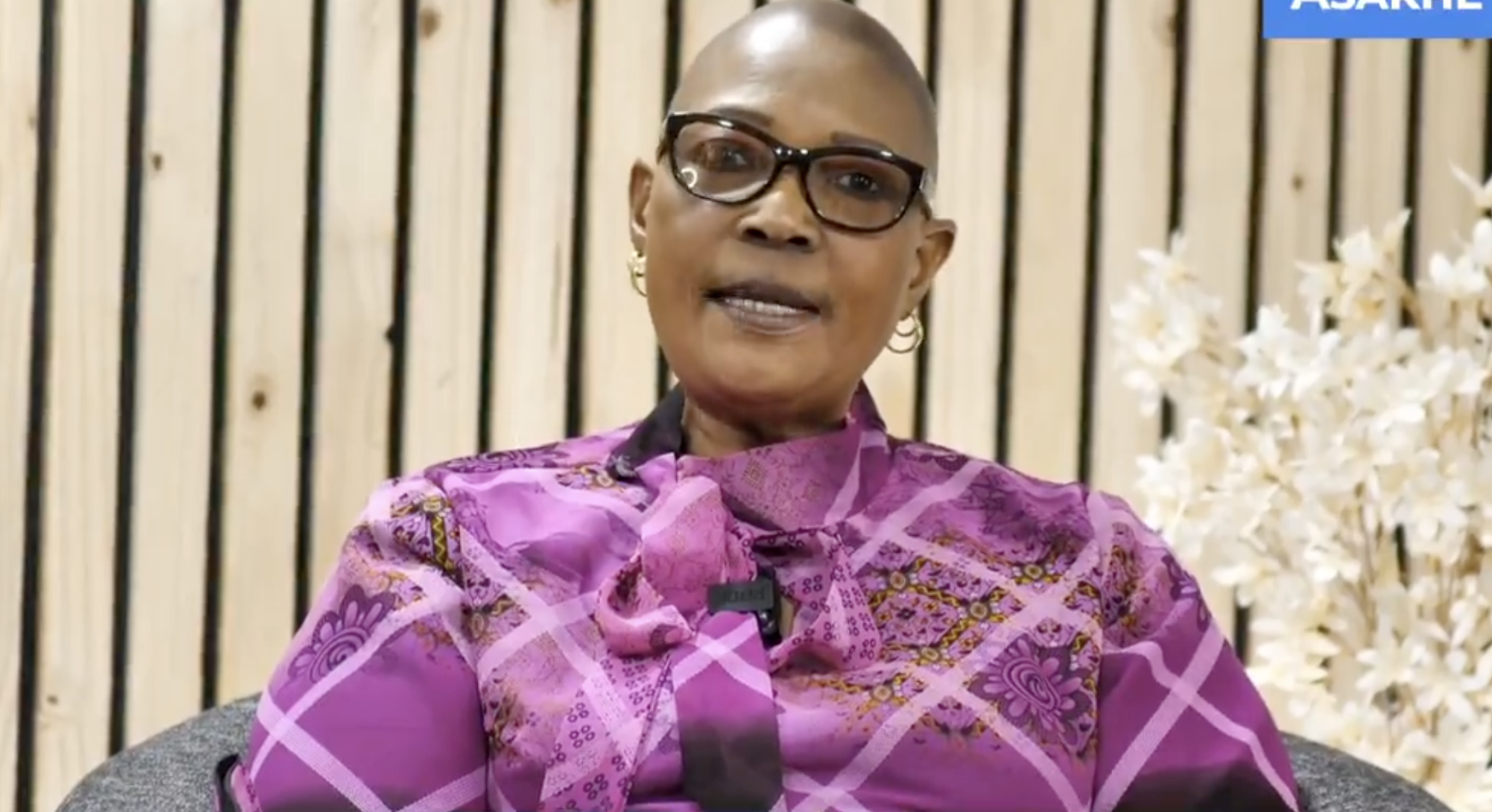Former Deputy Prime Minister and current Member of Parliament for Bulawayo, Dr Thokozani Khupe, has shared her emotional journey from being misdiagnosed with ovarian cancer to receiving the correct diagnosis of lobular breast cancer, highlighting the critical role of early detection and advanced medical technology.
As the Patron of the Thokozani Khupe Cancer Foundation, she has now dedicated herself to raising awareness about cancer, especially in Zimbabwe.
Khupe’s ordeal began in 2023 when she started experiencing severe symptoms, including a protruding stomach, loss of appetite, and excruciating pain.
“Come 2023, the cancer came like a thief. I told my young sister that this was not normal. I thought perhaps it was Kwashiorkor as I was thinking of so many things. I had gone out for (election) campaigns and I thought I had an infection,” she said in an interview hosted by the CITE View.
Her initial diagnosis in Zimbabwe pointed to cervical cancer, believed to be a consequence of the breast cancer she had battled in 2011.
“I went to the doctor and was given tablets. After one week there was no change. I went back to my initial doctor and I booked an appointment with a specialist and went for a CT scan at a (local private hospital). I was told I had cervical cancer as a result of the breast cancer I had in 2011,” she said.
Seeking further clarity, she travelled to South Africa, where doctors ran several tests and diagnosed her with ovarian cancer that had spread to her stomach and other organs. Despite undergoing treatment, her condition only worsened.
“I have never been sick like that. I was vomiting, I had severe diarrhoea, you ain’t seen anything like,” Khupe recalled.
As her health deteriorated, Khupe was advised to return to Zimbabwe and undergo palliative care – essentially being told there was nothing more that could be done.
“The doctor in South Africa told me they had tried their level best so this is where we will stop and referred me to a doctor in Zimbabwe for palliative care, be admitted into a hospital and taken care of because there is nothing more than can be done,” she narrated.
“When I came back to Zimbabwe I was like ‘Oh my God.’ Then the idea of India came up thanks to the president and government for assisting me.”
With support from the Zimbabwean government, she travelled to India, but after undergoing 15 cycles of treatment, there was no improvement.
Her condition became critical, and her stomach filled up with six litres of fluid weekly.
“My stomach looked like an equivalent nine-month pregnant old woman. I couldn’t sleep, I couldn’t turn and eat in India. I was now weighing 68 kg. If anything, l was deteriorating every day. I think if I had stayed more in India I was going to come back to Zimbabwe in a coffin.”
In November 2023, after her children from the United Kingdom (UK) visited her for her 60th birthday in India, Khupe was advised to go to the UK for further consultations.
It was there that a breakthrough came. The UK doctors, using state-of-the-art combined CT and PET scans, provided a correct diagnosis: lobular breast cancer, not ovarian cancer.
The advanced equipment in the UK allowed for a more precise diagnosis, something Khupe emphasised as lacking in Zimbabwe.
“In Zimbabwe, we have CT scans, but they sometimes give you the wrong diagnosis, which is what happened to me,” she explained.
“In the UK, with the combined scans, you get an accurate diagnosis.”
After starting a new course of treatment in the UK, Khupe saw rapid improvement. Her stomach returned to normal after just four cycles, and the water buildup stopped.
Her energy returned, and she began eating again. Although the road was still challenging, Khupe remained hopeful.
She completed 18 cycles of chemotherapy, and follow-up scans revealed that her tumours had shrunk by nearly 80 percent, with less cancer activity.
“Remember the MP swearing-in ceremony. I was a walking grave but look at me now, I am feeling good, I am feeling ok,” she said, with a renewed sense of hope.
“Fortunately, we must thank God for healing me and giving me a second chance at life. I’m feeling strong now, and apart from the side effects of treatment, cracking hands and feet which feel like I am walking on needles, I feel like myself again.”
Despite her experience, Khupe emphasised that early detection can lead to successful treatment even in Zimbabwe, where healthcare infrastructure may not be as advanced as in other countries.
“Yes, I was assisted by the government to treat me, and now I am trying to give back by becoming an advocate for cancer awareness,” she explained.
In 2011, after her initial diagnosis of breast cancer, Khupe founded the Thokozani Khupe Cancer Foundation.
The foundation aims to raise awareness about cancer, emphasising that early detection is key to survival.
She claimed “many” people in Zimbabwe are dying of cancer, not because the disease is untreatable, but because they lack knowledge about it and fail to seek help in time.
“Once cancer is detected early, it is easier and cheaper to treat,” Khupe stated.
“But if it’s detected at an advanced stage, it becomes very difficult, complicated, and expensive to treat, like the one I have right now.”
Khupe encourages women to conduct self-examinations, check for lumps, and seek medical attention if they notice any abnormalities, such as nipple discharge.
Her foundation has been working with local communities, including flea markets and salons, to spread awareness about the disease.
“We want to remove the stigma around cancer and confront it like any other disease. Once you develop a fighting spirit, it helps in your recovery. Cancer is a rising epidemic, worse than HIV because with HIV, we have ARVs, but with cancer if it’s advanced, treatment is much more difficult.”

